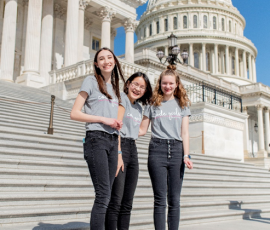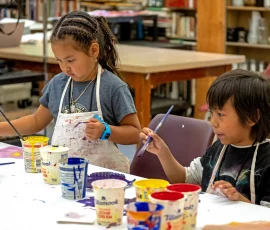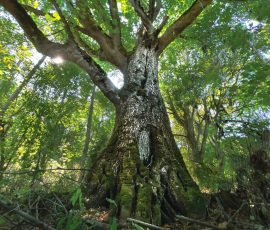
Last month, I shared some insights into the work underway at the Murdock Trust as we transition to our sectoral model. Today, I am excited to share more details on this transition, including our full sectoral leadership. Before I get into the specifics of this latest update, I wanted to elaborate a bit on why we are refining our sectoral focus.
Refining Our Sectoral Focus
To start, I want to frame this in the context of how we approach grantmaking. As a primarily interactive funder, our approach has always been to listen to our grantees and the broader community to understand their priorities and approaches to achieve effective solutions to the challenges that are presented. We have concentrated our investments on longer-term capacity-building needs, specifically projects that will help a nonprofit strengthen its work and grow from one phase of service to the next.
In service to, and in response to, our grantees and stakeholders, we have grown from solely making grants to offering enrichment programs that invest in the capacity of the individuals leading nonprofit organizations, as well as convenings that help connect those working on the complex challenges of our day. We have prioritized maximizing our financial investment in the communities we serve. To do so, we have employed a model in which our grants staff are generalists, for the most part, working across several sectors. This model fosters cross-pollination of ideas and relationships, while fielding a cross-trained team that can adapt well to new challenges. As the work of the Trust has grown and the work in different sectors has become nuanced, we see the opportunity and need to have more sector-focused teams that have a deep and robust understanding of the nuances of the frameworks, strategies, issues, and opportunities in the sectors we serve.
This enhanced sectoral focus should enable greater partnership, deeper listening, and a continued history of impactful grants, initiatives, programs, and convenings that will foster innovative and sustainable solutions to issues impacting the Pacific Northwest.
Our New Sectors
With all of this background context in mind, I am excited to share the following sectoral updates coming soon to the Murdock Trust.
Arts, Culture, and Education: Lorin Schmit Dunlop is promoted to senior director for our Arts, Culture, and Education sector. Lorin’s professional background includes thirty years of outstanding service in the arts and educational space. We have been fortunate to benefit from her expertise for nearly a decade at the Trust and we are so pleased to have her leadership guiding our work in this space moving forward.
Civic Engagement and Community Services: Rudy Carrasco is promoted to senior director for the Civic Engagement and Community Services sector. Rudy’s passion for community-focused solutions and more than 30 years of experience in this space has been a blessing to the Trust since he joined us in 2018. Rudy will be joined in this sector by Jeremy White, senior program officer.
Health and Conservation: Jill Lemke, recently promoted to vice president for grants management and training, will lead our Health and Conservation sector as part of her new role. Kim Newman, senior program officer, will join Jill in this important work.
Scientific Research: Moses Lee, recently promoted to vice president for scientific research, will oversee the Trust’s work in this sector.
Nonprofit Leadership and Development: Kimberly Thornbury, recently promoted to vice president of nonprofit leadership and development, will oversee this new sector. John Franklin, program director, will join Kimberly in this work.
Answering Some Questions
One of the most frequent questions I’ve received when I have shared this news with close confidants has been, “Does this mean you are changing who you are funding?”
I’m happy to say that the short answer to this question is no, our overall funding priorities will remain the same. I would add that roughly 30 percent of the organizations we fund each year are new to the Trust. So, we are also constantly changing who we are funding as we invite new grantees into our process.
As we look to the future, we will begin the third phase of our work: revamping our grantmaking process. Today’s announcement, completing the sectoral redesign, reflects Phase Two, and an overview of Phase One can be found here. Our review and redesign work is underway for our grantmaking process, and we will have more to share when we reach year-end. Through that process we may identify new parameters that welcome organizations to apply who have not previously aligned with our grantmaking criteria. We also may find a need to tighten our parameters in other areas. Any adjustments to our process will be shared clearly and broadly in order to best support those we serve.
We also know this raises questions regarding timing of these changes. Our sector leaders are working now on developing strategies to best serve our constituents. We are also still working through dozens of grant applications that have come in under our existing model. With these factors in mind, we will likely see a gradual transition over the next few months, with the new sectoral model taking full effect at the turn of the year with our new grant application process.
In closing, I want to express my gratitude for the entire Murdock Trust team and our Trustees for their time, energy, and dedication as we have navigated this process. I also want to share my gratitude for our community of constituents who have helped inform our thinking regarding ways we can adapt to better serve the needs of our region. I look forward to continuing to share our progress along this path in the coming months!
-Romanita Hairston, CEO
Sign up for our newsletter on our home page to be the first to receive future CEO announcements and updates on grantmaking.








